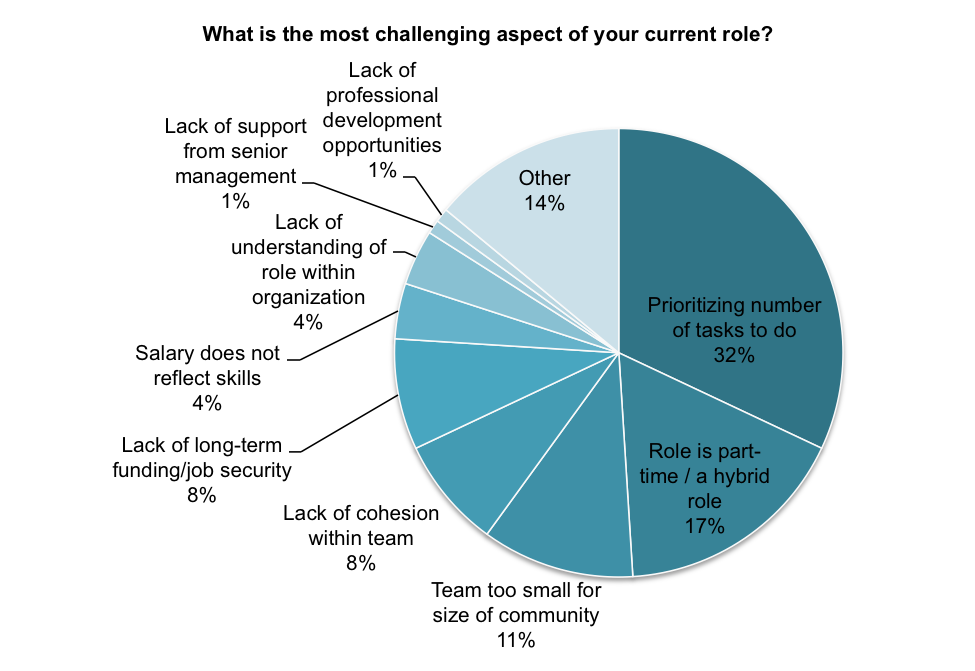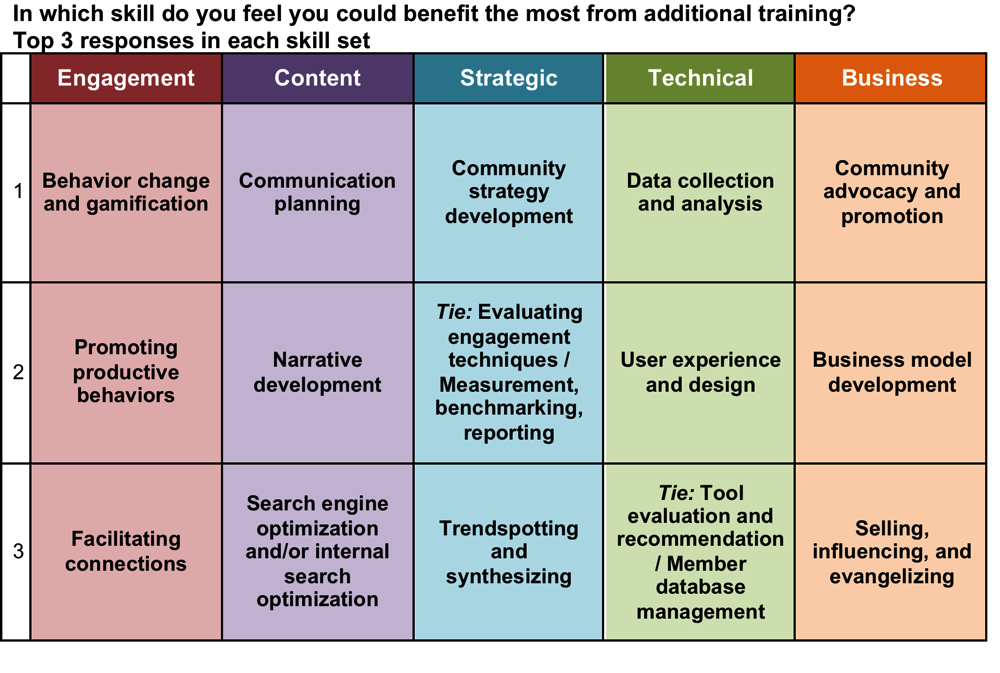In our series of posts about results of the State of Scientific Community Management survey we’ve looked into what types of organizations are home to scientific communities, examined their communication channels and ways of planning activities, and analyzed scientific community managers’ backgrounds, skill sets, and how their positions are funded.
In our final blog post about survey results, we return to the topic of community managers’ skill sets, focusing on their top challenges and the areas where they want more training.
Scientific community managers’ biggest challenge is prioritizing work tasks
We asked the 66 community managers who responded to our survey what part of their role they find most challenging. 32% of them said prioritizing the number of tasks to do (Figure 1). The next largest contingent, 17% of respondents, said their biggest challenge is the part time or hybrid nature of their role, and many others (a combined 19%) identified the small size or lack of cohesion within their community management team.

The “Other” category was also sizable: Respondents made note of the challenges of justifying investment in the community, fundraising, figuring out how to engage the community and senior management, and the lack of organizational support for using an interactive platform.
The challenges our respondents identified speak to the fact that community managers have a huge number of tasks, and lack the necessary personnel and training to tackle them. We also know from examining the skill sets of community managers that the tasks can be tremendously diverse, ranging across communications, technology, business affairs, and more.
Through the Community Engagement Fellows Program, we aim to help community managers in the sciences prioritize these tasks by understanding which tasks are most valuable – and efficient – for achieving the goals of a community.
By training new scientific community managers and working with host organizations, we also hope to grow the pool of highly trained community engagement experts who can support understaffed teams.
Skills in which community managers want training
Following their valuation of skills within each of five skill sets, we asked community managers to identify one skill within each skill set that they felt they needed the most training in. Here are the three most common responses, for each skill set:

These responses show that the training needs of community managers range from highly specific tasks, such as internal search optimization, to big-picture issues such as communication planning. Also notable is the prominent ranking of skills tied to online communities alongside more general community skills such facilitating connections. The skills tied to online community-building include user experience and design, internal search optimization, and gamification.
We’ll take this feedback into consideration when developing the training curriculum for our Community Engagement Fellows. In our first survey results post we noted that scientific community managers tend to be self-taught, learning from coaches, conferences, online courses, professional development networks, blogs, books, and even research publications.
With our Community Engagement Fellows program, we look forward to helping scientific community managers overcome their challenges and learn the specific skills they need by pointing them to resources in a range of channels and formats and providing training modules from experts in the field. To find out more about the program, click here.